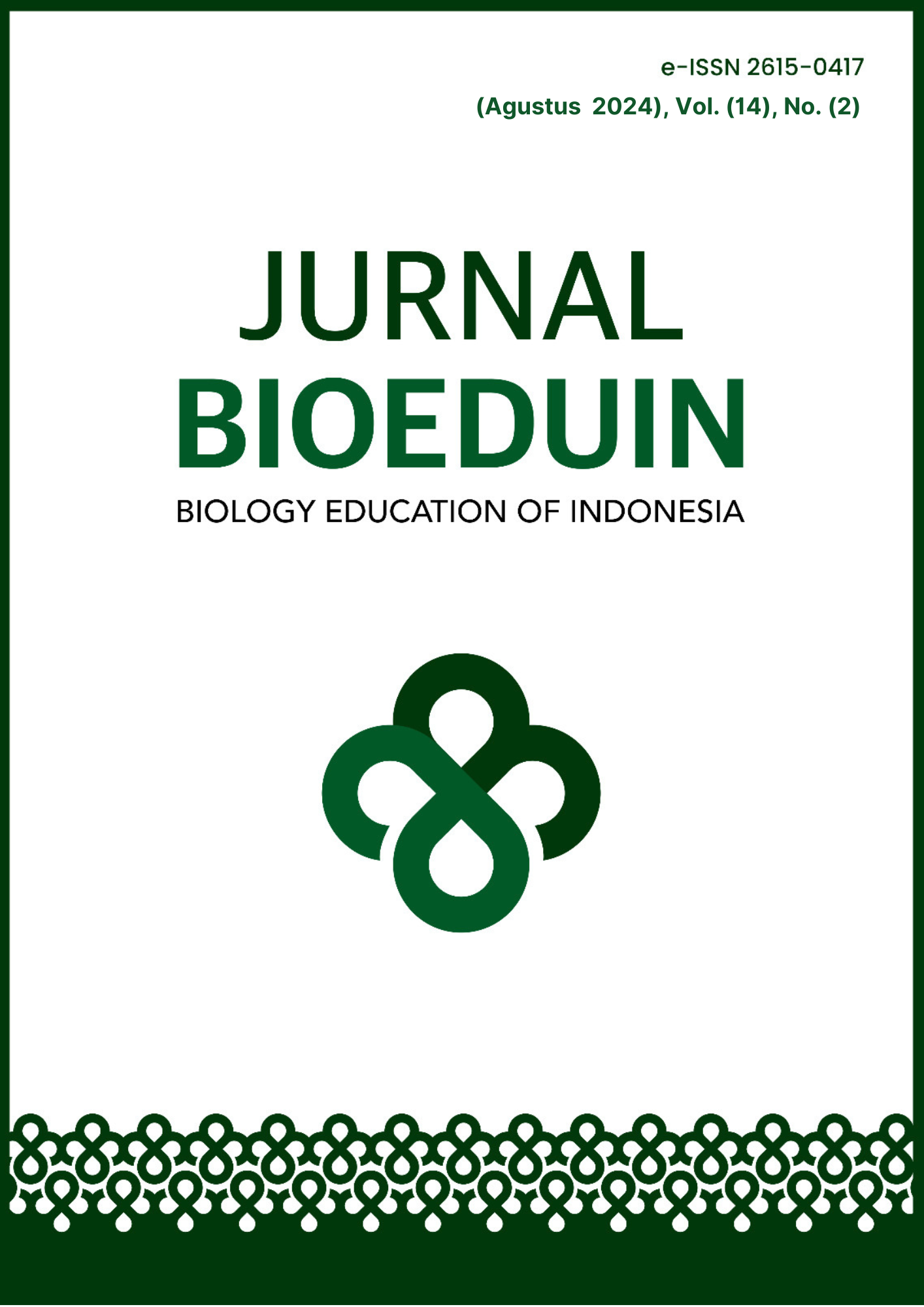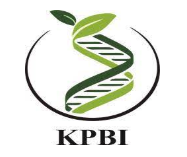Integration of Local Wisdom in Biology Learning as a Strategy for Overcoming the Waste Crisis
DOI:
https://doi.org/10.15575/bioeduin.v14i2.38065Keywords:
Local Wisdom, Biology Learning, Waste CrisisAbstract
This research explores the impact of integrating local wisdom in biology learning on waste management at Madrasah Aliyah Al-Jawahir, Bandung Regency. A qualitative approach using the case study method is used to understand how applying local wisdom values such as cooperation, ngamumule, sabilulungan, and sampurasun in waste management practices influences students' understanding of biology and the environmental conditions of madrasas. Research subjects included madrasah principals, biology teachers, and students actively involved in this program. Data collection techniques include in-depth interviews with madrasa heads and biology teachers, direct observation of waste management activities, documentation through activity notes and visual media, and questionnaires to measure students' understanding of biological material related to waste management. Data were analyzed using the thematic analysis method to identify main patterns and themes from interviews, observations, and questionnaires. The research results show that integrating local wisdom in biology learning at MA Al-Jawahir has had a significant positive impact. The practice of composting and recycling waste not only reduces the amount of organic waste and improves environmental cleanliness but also provides economic benefits through the sale of compost. The majority of students demonstrated a good to excellent understanding of biology in the context of waste management, according to the results of a questionnaire categorized into four levels of experience. In conclusion, the integration of local wisdom in biology education can provide an effective and sustainable solution to overcoming the waste crisis in accordance with Bandung Regency regional regulations, which encourage the active participation of educational institutions in preserving the environment. Research recommends continuing to develop this program in the curriculum and extracurricular activities and involving more parties to create a clean and healthy environment for all.
Downloads
Additional Files
Published
2024-09-01
How to Cite
suryana, neng lani, Nuryantini, A. Y., & Miladanta, A. N. (2024). Integration of Local Wisdom in Biology Learning as a Strategy for Overcoming the Waste Crisis. Jurnal BIOEDUIN, 14(2), 34–45. https://doi.org/10.15575/bioeduin.v14i2.38065
Issue
Section
Articles
Citation Check
License
Authors who publish in Jurnal BIOEDUIN agree to the following terms:
- Authors retain copyright and grant the journal right of first publication with the work simultaneously licensed under a Attribution-ShareAlike 4.0 International (CC BY-SA 4.0) License that allows others to share the work with an acknowledgment of the work's authorship and initial publication in this journal.
- Authors are able to enter into separate, additional contractual arrangements for the non-exclusive distribution of the journal's published version of the work (e.g., post it to an institutional repository or publish it in a book), with an acknowledgment of its initial publication in this journal.
- Authors are permitted and encouraged to post their work online (e.g., in institutional repositories or on their website) prior to and during the submission process, as it can lead to productive exchanges, as well as earlier and greater citation of published work (See The Effect of Open Access).









